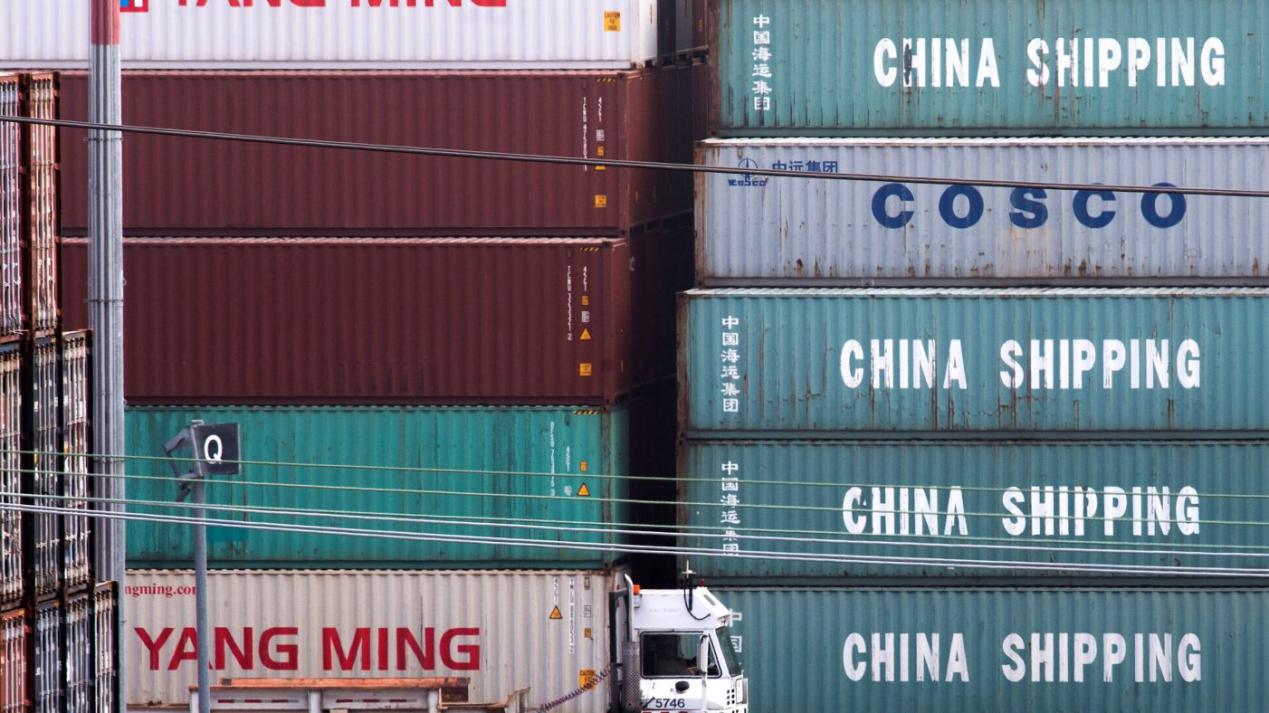新关税会来吗?百思买和美泰等大型零售商已经做好准备

|
谈到中国输美商品的关税问题,美国公司已经明白,唯一可以确定的,是未来会有更多的不确定性。 12月3日,美国股市连续第二天下滑,因为美国总统唐纳德·特朗普再度威胁,将在12月15日对中国输美价值约1600亿美元的商品加征15%的关税——此前的关税加征已经在实施。聪明的投资人对于公司高管的一些谨慎言辞非常关注,在过去几周里,这些高管们已经在业绩预测中纳入了关税影响,并与供应商重新谈判商业协议。 有些公司的日子好过一些。全美零售联盟(National Retail Federation)的首席执行官马特·舍说,大型零售商因为采购体量大,可以对供应商施压要求降价,以此来缓和关税影响,但中小型公司就不具备这样的灵活度。 “我们能够控制的那些事情” 大公司可以采取一系列的举措,比如在新关税到来前建立更多库存、与供应商谈价格,这些供应商会害怕丢失主要客户而妥协。 Yeti Holdings公司的首席执行官马特·瑞恩特耶斯,在10月31日的一次电话会议中将此总结为一句话“继续关注那些我们能够控制的事情”。首席财务官保罗·卡邦认为,这些关税“仍然像是一个移动的靶子”,但他同时也说,这家酒具零售商已经采取了措施,包括在12月15日前增加库存,并从供应商处要求获得更低的价格。公司也削减了一些其他项目,比如营销插页和包装。 百思买也宣布了类似的举措——它也是被中国商品关税影响最广泛的零售商之一。 “我们的处境,没有任何先例,许多事情在不断变化中。”百思买的首席执行官科利·巴里在11月26日的电话会议中说。该公司在今年最后一季度的产品售价提高将只涉及“有限数量”的产品。 有些公司比如玩具制造商美泰和鞋类连锁公司Boot Barn Holdings,表达出了信心,他们能够消化这种影响——至少现在。 “价格妥协” “我们许多商家在让中国伙伴作出价格让步方面,做得挺成功。”Boot Barn的首席财务官格雷格·哈克曼在10月30日说到,同时他也说公司产品的涨价不会早于明年2月。“这样一来,我们认为加征关税对当前财政年度的影响可以忽略。” 关税的冲击早已纳入Boot Barn的全年预测中。 美泰的首席执行官叶农·克雷茨在10月29日对投资者说,今年不会有任何实际的影响,但在未来保持灵活度将是关键。 “我们确实有一些缓解因素或可采取的行动。”他说,包括涨价和更换供应商以及产品品类。他说美泰还能“过渡到一个不同的生产架构”。 有好几家公司,包括时尚鞋类制造商Steven Madden和折扣零售商Dollar Tree,都提到他们准备把生产迁出中国。 节假日的力量 公司要应对的是加征关税对他们自己成本的影响,但他们无法自信地为消费者的行为作出安排。有一种风险是,在制造业萎缩时仍能让经济繁荣的美国购物者,可能会开始收缩开支,如果关税导致产品价格上涨的话。 为期5天的感恩节假日周末,销售很强劲,据全美零售商联盟的数据,购物者平均支出361.90美元,比去年上升16%。该机构的首席执行官舍在11月29日的一次采访中警告说,新关税可能会浇灭这股势头。 他说,“12月25日的新一轮关税将可能是自损的行为,我们希望能够避免,让销售高昂的势头延续到下一季度和2020年。”(财富中文网) 作者:Jonathan Roeder, Donald Moore, 彭博社 译者:宣峰 |
When it comes to tariffs on Chinese imports, U.S. companies have apparently learned their lesson: The only certainty is there will be more uncertainty. Stocks slid for a second day on December 3 as U.S. President Donald Trump ratcheted up his threat to put tariffs of 15% on $160 billion of Chinese goods as of Dec. 15—on top of the duties already in effect. Investors would have been wise to heed the cautious words of corporate chieftains, who over the past few weeks were already baking the estimated impact into their forecasts and renegotiating their deals with suppliers in preparation. Some companies will have an easier time of it than others. Matt Shay, chief executive officer of the National Retail Federation, said large retailers may have the scale to pressure suppliers for discounts to mitigate any damage, but small and mid-sized companies won’t have the same flexibility. “What We Can Control” Company playbooks include a range of actions, from building up inventory ahead of the new tariffs to negotiating lower prices from suppliers that are loathe to lose the business of a major customer. Matt Reintjes, CEO of Yeti Holdings, summed it up on an Oct. 31 conference call as “remaining focused on what we can control.” Chief Financial Officer Paul Carbone acknowledged the duties “remain a bit of a moving target,” but said the drinkware retailer has taken measures including stocking up on merchandise ahead of Dec. 15 and negotiating lower costs from suppliers. It’s also trimming back on things like marketing inserts and packaging. Similar moves were announced at Best Buy—which is among retailers most exposed to China tariffs. “There just really isn’t a precedent for where we are right now and there are a lot of moving pieces,” CEO Corie Barry said on a Nov. 26 call. The company saw a “limited number” of price increases in its latest quarter. Some companies, like toymaker Mattel and footwear chain Boot Barn Holdings, have expressed confidence in their ability to negate any impact—at least for now. “Cost Concessions” “Many of our larger vendors have been successful with getting cost concessions from their Chinese partners,” Boot Barn CFO Greg Hackman said on Oct. 30, adding that any price increases wouldn’t come until February at the earliest. “As such, we believe that the impact of tariffs for the current fiscal year will be negligible.” The brunt of any duties is already included in Boot Barn’s full-year forecast. Mattel CEO Ynon Kreiz, speaking to investors on Oct. 29, said that while any impact isn’t expected to be material this year, being nimble will be key going forward. “We do have several mitigating factors or actions that we can take,” he said, including price increases and changes to suppliers and product assortment. He said Mattel could also “transition to a different manufacturing structure.” A number of companies, from fashion footwear maker Steven Madden to discount retailer Dollar Tree, have also said they’re working to move production out of China. Holiday Strength Companies may be prepared for how the tariffs will affect their own costs, but they can’t plan as confidently for consumer behavior. There’s a risk that American shoppers, who have kept the economy humming even as manufacturers scale back, could start to tighten their purse strings if tariffs lead to price increases. Sales were strong over the five-day Thanksgiving holiday weekend, with shoppers spending an average $361.90, the NRF reported, a 16% jump from a year earlier. Shay, the group’s CEO, warned in a Nov. 29 interview that the new tariffs could sap that momentum. “We would put the Dec. 15 round of tariffs in that category of potential self-inflicted wounds we hope we avoid so we can continue this momentum into the season and into 2020,” he said. |













